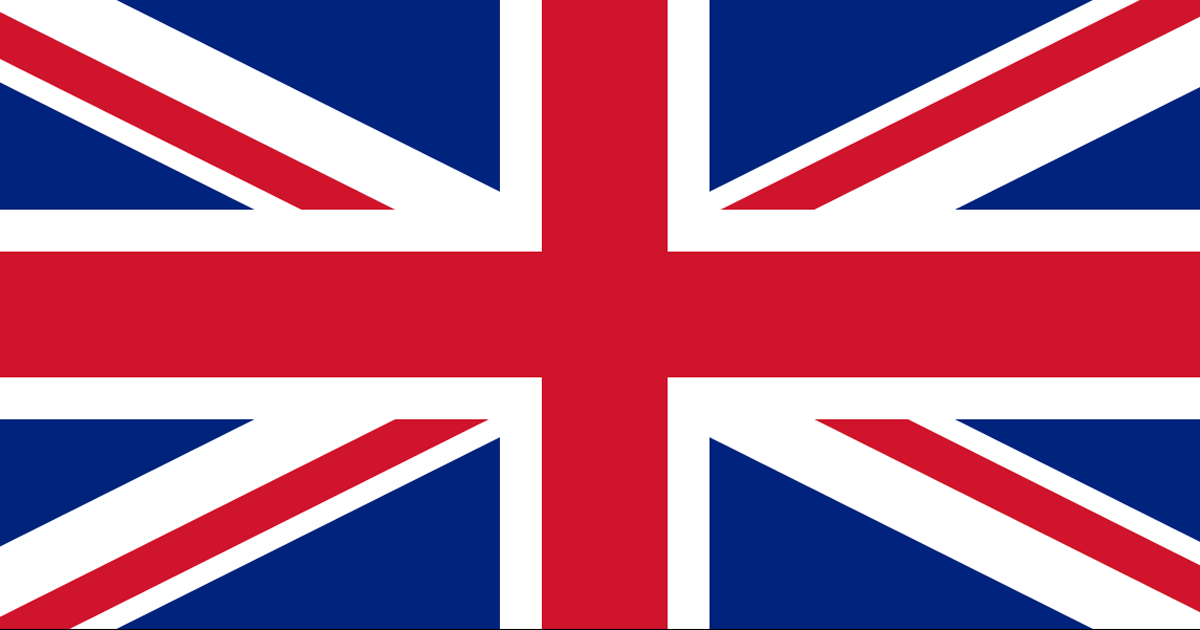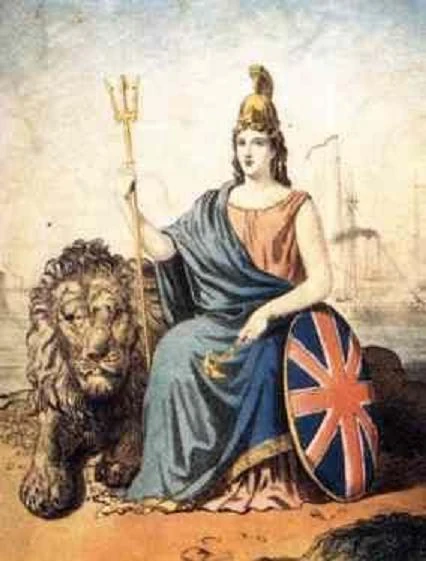England is one of the powers that doesn't often raise a lot of enthusiasm among players if they draw her in the game. This is mainly because, while it is a power that can do well enough, being in an highly defensible position and therefore a power that is likely to keep a decent player in the game until the end, it is one of the more difficult powers to win a game with.
In short, she's seen as 'boring'.
Well, no power in Diplomacy should be boring to play; you're doing something wrong if this is the case. And England is just as good a prospect to win the game as any other power. Just think outside the box.
In this series of posts, I'll be looking at England's position on the board, her opening strategies, her potential alliances, and a strategy that can lead to victory for the English player.
But first, let's look at how the history of Britain may well give some clues to playing England in Diplomacy.
In short, she's seen as 'boring'.
Well, no power in Diplomacy should be boring to play; you're doing something wrong if this is the case. And England is just as good a prospect to win the game as any other power. Just think outside the box.
In this series of posts, I'll be looking at England's position on the board, her opening strategies, her potential alliances, and a strategy that can lead to victory for the English player.
 |
| https://assets2.hrc.org/ |
Wait - that's the Union Jack!
I can feel the animosity! "England isn't the United Kingdom!"
Well, quite. So why, when the power on the board which is properly called Great Britain (not the UK, by the way - the UK incorporates Northern Ireland, which is part of the neutral island of Ireland on the board), did Calhamer call it 'England'?
Well, I guess we'll never know, but there are reasons for calling Britain 'England', historically as well as erroneously.
Britannia will Rule the Waves
 |
| https://vignette.wikia.nocookie.net/pdsh/ |
However, I really want to concentrate on how Britain's foreign policy has developed in modern history.
After the Napoleonic Wars, the British government made a very pragmatic decision relating to the security of both Britain and her empire. This was a new direction for, while Britain had governed colonies for a century, she had generally left them to look after themselves. Only in North America had Britain truly invested a military/imperial effort.
However, Napoleon attempted to impose his Continental System across his empire, by which he closed Europe's ports to British trade. Although this was a strategy which, ultimately, failed - partly due to Britain being able to trade with her Empire, and partly because Napoleon was never completely able to seal mainland Europe - Britain woke up.
Napoleon's navy was never able to truly challenge Britain's maritime dominance. However, with her Empire widely spread across the globe, and with Britain needing maritime trade to maintain her position as a major power, the British government instituted a policy whereby her navy was to be larger than the combined might of the world's second and third largest navies combined.
Over the life of this policy, the major challenges came from Germany and, later, the USA. Germany, when she became unified, joined the global imperial race. Indeed, Germany became Britain's only real rival industrially in Europe, and she followed Britain's example by seeking extra-European markets. And, while the US had an official anti-colonial policy - something she could afford because she was, effectively, a continent - she had overseas trade to promote and protect, as well as two oceans on her coasts.
Militarily, then, Britain focused on her navy. She saw this as the only effective way to secure her interests.
Now, look at the Diplomacy board if you need. England, in Dip, is surrounded by seas. To invade England a power needs to 'cross' sea spaces. She is the only power on the board that can't be directly invaded by land. What does that tell you?
Well, it tells me that England is a strong defensive power. If you want to survive a game of Dip, England is a good power to be assigned. If you're a Drawmonger, England is one of the powers you'll want to play.
But you don't want to be able to just survive, do you? You do? Ah, right, you're playing a tournament and you're wanting to protect your position; fair enough.
Otherwise, though, you should be entering a game to win. What else have you joined the game for? Entertainment - yes, OK. But that doesn't change the fact that you're in the game and you have a contract with the other players to play it.
So, let's assume you're not playing a game of Diplomacy as part of a tournament (needing to protect a position in the wider picture), or idiotically (playing to draw just because), and that you are actually trying to play Diplomacy and win.
There is a widely perceived altruism that England should be played in a balanced way, that she needs to build armies and navies in equivalence. Why? Because to win she will need - correctly - inland SCs to reach 18.
And that is reflected in European wars in which Britain has been directly involved. No continental war has ever been won by controlling the coasts. The same is true in Diplomacy. England will need inland SCs.
However, in order to reach those inland SCs, England needs to be Britannia; to get there, she needs to dominate the seas. And it is also true that a victorious England will hold more coastal SCs than inland.
In Diplomacy reality, then, as well as historically, England needs to dominate the seas before she can win. And that means fleets before armies, as it did in history.
Heathley Baines (Nibbler)
Editor
The Series "The Powers: England"
Part 1: "Introduction"
Part 2: "The Wicked Witch of the West"
Part 3: "England's Opening Strategies - the Northern Openings"
Part 4: "England's Opening Strategies - the Southern Openings"
Part 5: "England's Opening Strategies - the Rest"
Part 6: "English Dual Alliances: The Entente Cordiale"
Part 7: "English Dual Alliances: The Saxon"
Part 8: "English Dual Alliances: The Anglonaut"
Part 9: "Other English Dual Alliances"
Part 10: "English Triple Alliances: The Western Triple"
Part 11: "English Triple Alliances: The Atlantic Triple"
Part 12: "English Triple Alliances: The Triple Entente"
Part 13: "English Triple Alliances: The Viking"
Part 14: "English Triple Alliances: The Guillotine"
Part 15: "Britannia Rules the Waves"
Comments
Post a Comment